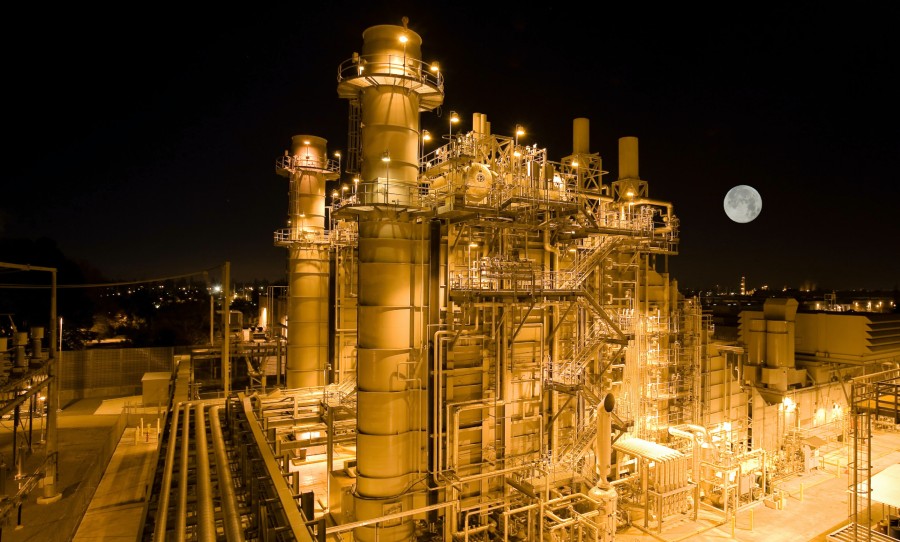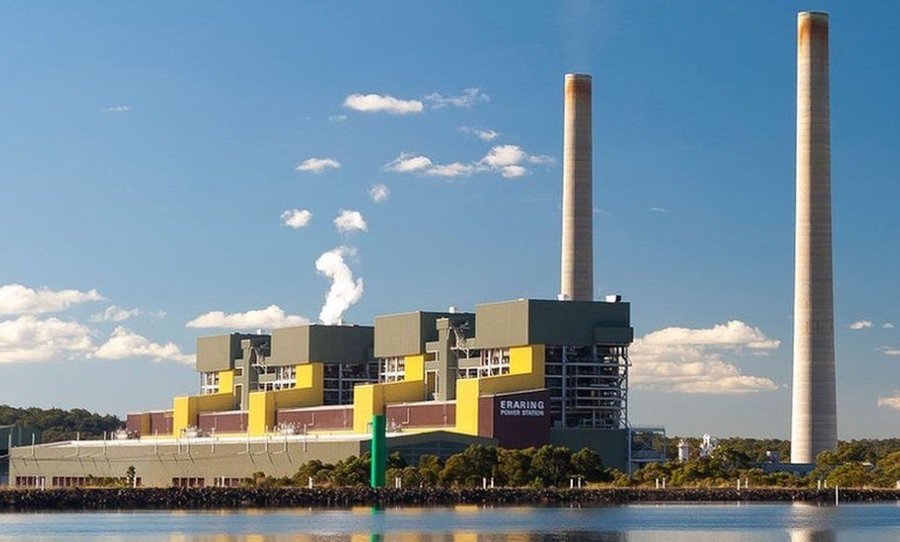As Origin plan to shut down the Eraring coal station seven years early, lobbyists promise that gas will cut emissions, but experts are doubtful.
Australia’s largest coal-fired power plant will shut down seven years earlier than expected due to an “influx of renewables” says the station operators. Yet lobbyists are still striving to have new mines approved, all the while expanding the gas sector under false claims of carbon neutrality.
The 2880-gigawatt Eraring plant at Lake Macquarie – one of the top 3 power stations in Australia for greenhouse gas emissions that likewise produces a near fifth of NSW’s energy needs – will shut down by 2025 as plant owners Origin Energy accelerate towards dependency upon a combination of gas and renewables.

Frank Calabria, the company’s chief executive, said, “Origin’s proposed exit from coal-fired generation reflects the continuing, rapid transition of the NEM (National Energy Market) as we move to cleaner sources of energy”.
In place of the Eraring coal-fired power plant, NSW Energy Minister Matt Kean said that Origin will be “building the biggest battery in the Southern Hemisphere. A 700-megawatt transmission battery that will free up capacity in our transmission system…”, which compensates for only one-quarter of the Eraring plant.
Despite what will be a celebrated step away from fossil-fuel dependency, companies such as Chevron, ExxonMobil, Shell, and BP are failing to invest in a future where the Paris Agreement’s objectives are met.
Alex Hillman, the ex-strategy advisor for Australian energy giant Woodside and the Australian Petroleum Production and Exploration Association (APPEA), who now works for the Australasian Centre for Corporate Responsibility (ACCR), said that the pledges of Australian energy giants to curb emissions were fundamentally inconsistent with their investment plans.
This is huge.
Eraring, Australia's biggest coal-fired power plant, will shut 7 years earlier than expected, in 2025.
The shift to renewables is happening now. Time to support local communities and more #RenewableEnergy projects!https://t.co/FKEgUu3Ase
— Australia Beyond Coal (@AusBeyondCoal) February 16, 2022
The ACCR’s latest report – which Hillman. himself has approved – casts doubt over industry claims that gas is a ‘clean fuel’ that produces emissions 50% less than coal-generated electricity. Hillman states that this figure is closer to between 7 and 43 per cent.
The APPEA chief executive, Andrew McConville contrarily claims that gas is integral to reducing emissions, something that has been affirmed by CSIRO former chief scientist Dr Alan Finkel.
Last year the federal government announced a gas-led recovery policy program that will increase domestic gas production. Hillman described this policy as “nonsensical”, adding that “they [lobbyists] have one view for investors, and then another view when they want to ask the government for money… and somehow [they] still seem to convince everyone of the narrative for how useful gas is.”
Hillman’s comments highlight potential industrial-scale greenwashing by large banks misrepresenting the carbon neutrality of their capital gas-dependent energy investments.
Australian fossil-fuel giants Woodside and BHP have just signed a $16.5 billion offshore joint venture in November, which will see an additional 30 years of gas mining in Australia.
Well done @AngusTaylorMP the first casualty of your Kurri Kurri brain fart is #Eraring power station, it’s workforce & the Lake Macquarie community because your Govt has no #JustTransition plan. #abc730 #auspol
— Trevor Gauld (@austrippa) February 17, 2022
The developers claim that the 8 million tonne per annum project will be among the lowest carbon intensity sources of Liquefied Natural Gas for North Asian customers.
Activist organisation Market Forces says Australia’s biggest banks are funding a “carbon bomb” that will produce severe pollution for the next 30 years.
Yet NAB have stated, “climate action is everyone’s job. NAB wants to be part of the solution. We fully support net zero by 2050”.
With a dense history of falsified climate change data in the back of our minds, and fossil-fuel industry defectors such as Hillman stating that investment in LNG will undermine the achievement of the Paris Agreement objectives, can we really trust these lobbyists at face value while risking thirty years of staggering pollution?



